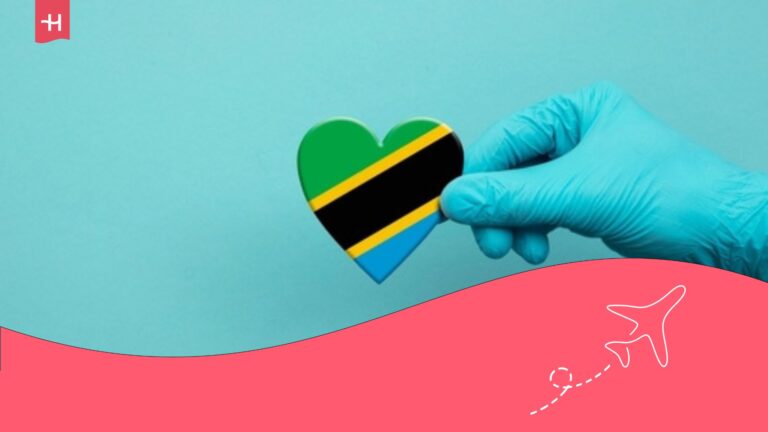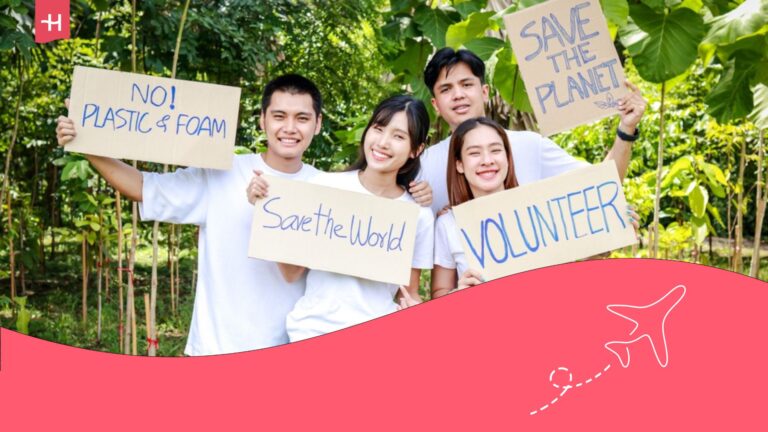Volunteering in Costa Rica: Requirements, best programs, and costs
Experience the “Pura Vida” spirit through volunteering in Costa Rica! Projects on turtles, education, health or women's empowerment.
Volunteering in Costa Rica takes some preparation, like learning about the requirements and exploring the available programs. This Central American country is one of the most popular destinations for volunteer work. From protecting sea turtles to supporting rural communities or running workshops in vulnerable areas.
In this article, we’ll walk you through the benefits of volunteering in Costa Rica, the most common requirements from host organizations, and the types of programs you can apply for based on your interests. We’ll break down the different projects available for 2025 and 2026, including their goals, duration, key details, and costs. Don’t hesitate to dive into this rewarding experience; it’s one that can make a real difference not just in the lives of others, but in your own as well.
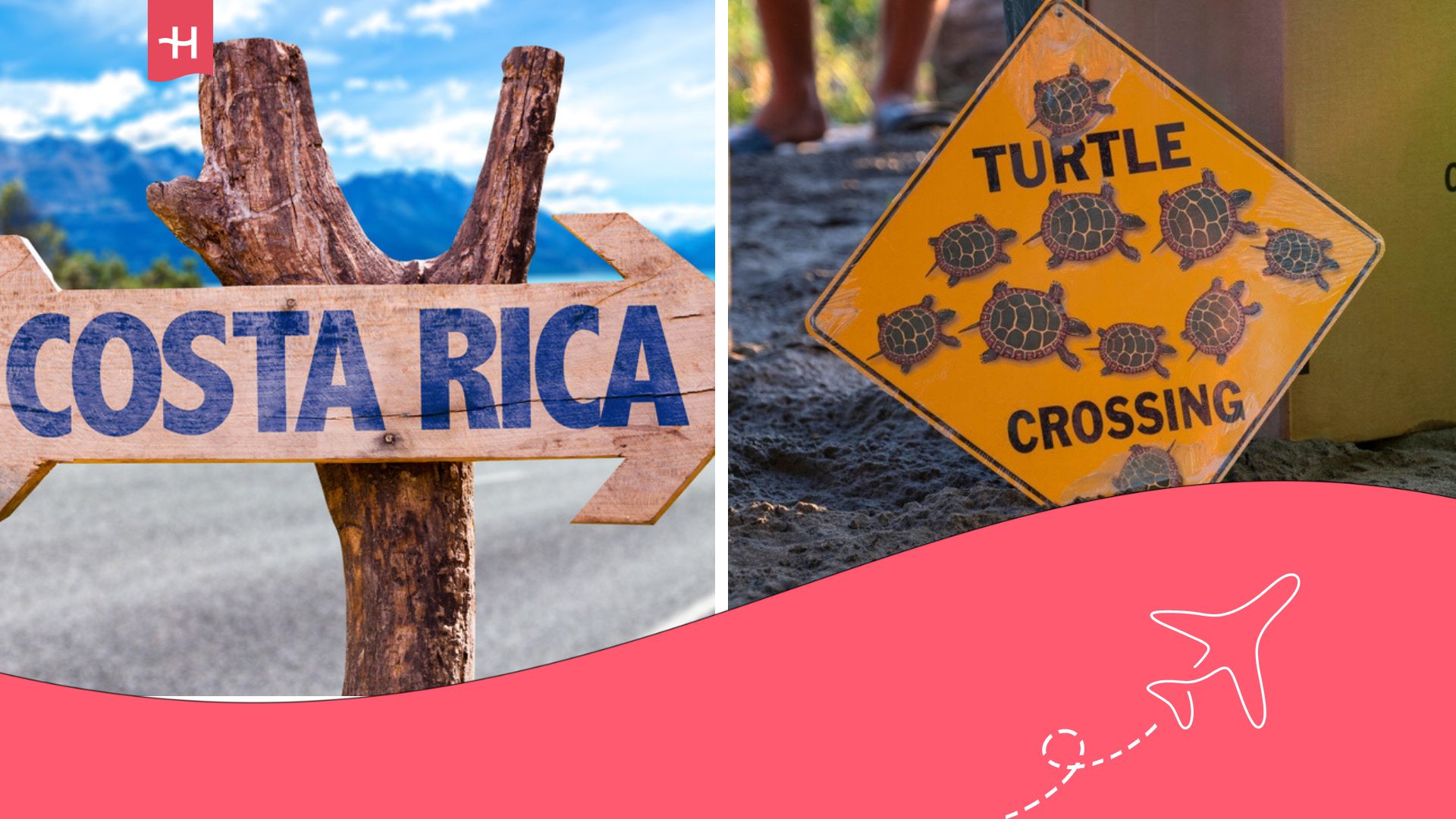
Advantages of volunteering in Costa Rica
Have you ever heard the Costa Rican phrase ‘Pura Vida’? More than just words, it captures the spirit and identity of the people. So much so that it’s become the country’s most iconic cultural symbol. It’s a mindset rooted in optimism, gratitude, and simplicity, reflecting not only the warmth of the locals but also their deep connection to nature and animals. One of the greatest takeaways from volunteering in Costa Rica is learning to slow down and truly appreciate life’s simple moments.
- Connection with nature: Costa Rica is home to 6% of the world’s biodiversity — including thousands of species of plants, animals, insects, and microorganisms. While you’re there, you’ll have the chance to explore some of the country’s most iconic nature reserves, like Corcovado and Tortuguero National Parks.
- Cultural exchange with Costa Rican communities: You’ll ease into a slower pace of life and get to experience local traditional dances like the punto guanacasteco and classic dishes such as gallo pinto and casado.
- Sustainable country: Costa Rica is a global leader in renewable energy and conservation. The eco-friendly practices you’ll learn during your stay can easily be applied back home or in future volunteer experiences.
- Safe and stable environment: You’ll be living in one of the safest countries in Latin America, thanks to its long-standing political stability and the fact that it’s had no army since 1948. It’s a place where conflicts are resolved peacefully and where the human development index is among the highest in Central America.
- Learning Spanish: If Spanish isn’t your first language, you’ll have plenty of opportunities to practice it daily while working alongside the local community. Being fluent gives you a big advantage when you connect with people and get involved.
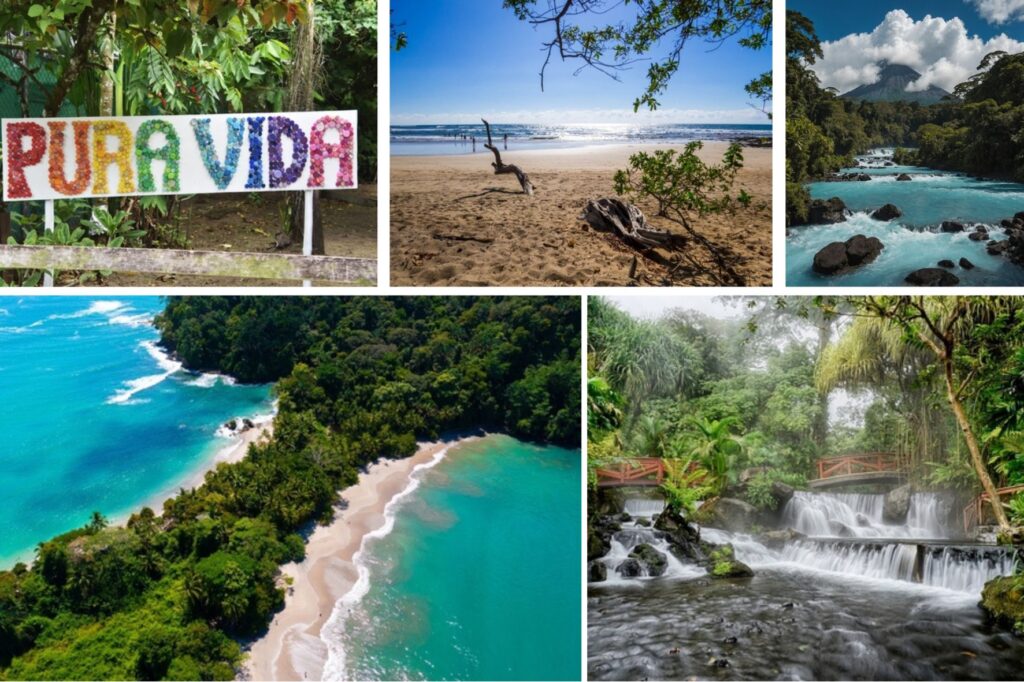
Requirements for volunteering in Costa Rica
To volunteer in Costa Rica responsibly and legally, you’ll need to meet the requirements set by each individual program. These conditions are usually quite accessible, as the country values the willingness of people who want to help; the more hands involved, the greater the impact on both the community and the environment. That said, here are the basic requirements you should keep in mind:
- Visa: You can enter Costa Rica as a tourist for up to 90 days without a visa, but if your volunteer program lasts longer, you’ll need to arrange an extension with the organization or apply for a specific visa.
- Minimum age: You must be at least 18 years old, although you can be a minor accompanied by an adult or in a supervised school program.
- Spanish level: Basic knowledge of the language facilitates integration, especially in rural areas. Some programs include previous language training.
- Medical insurance: Having international medical insurance to cover emergencies and accidents is mandatory.
- Recommended vaccinations: It is not mandatory, but we recommend you to be up to date with the vaccination for hepatitis A and B, tetanus and typhoid fever.
- Commitment and responsibility: You need to fully commit to the volunteering duration and act responsibly in your work.
The best internet connection during your volunteering
During your volunteer stay in Costa Rica, it’s essential to stay connected to the internet from the moment you arrive. This way, you can keep in touch with your organization and family, navigate with GPS, and handle any online paperwork or tasks.
Holafly’s monthly plans give you instant connectivity, just activate the SIM through their app in minutes. You’ll get 5G coverage even in rural areas, unlimited data, a reliable connection, and the option to connect two devices at the same time. All for $67.90 per month.
Important: If you are a frequent traveler and want to stay connected without worrying about expensive roaming or looking for a new SIM at every destination, Holafly’s subscription plans are for you. With a single eSIM, enjoy internet in more than 170 countries for a fixed price and no surprises on your bill. Travel without limits and connect easily and securely! 🚀🌍

Top 3 volunteer programs in Costa Rica
Now that we’ve covered the personal benefits of volunteering in Costa Rica and gone over the main requirements, it’s time to dive into the top three programs available in the country. We’ll explain each program’s goals, tasks, timeline, costs, and what you’ll get. Find the one that’s perfect for you, and start packing for your adventure in Costa Rica!
1. Asociación Aventuras del Corazón – education in rural areas
Aventuras del Corazón is a nonprofit organization working since 2009 with rural communities in the Central Valley and Guanacaste regions, including places like Nicoya and San Ramón. If you’re passionate about education and working with children, this program focuses on supporting early education for kids aged 5 to 12.
In this Costa Rican volunteer program, your main tasks will include organizing reading workshops, assisting in classrooms, leading educational games, and providing academic support, as well as helping create teaching materials. The table below outlines the key details:
| Characteristics | Details |
| Requirements | Older than 18, educationally inclined and basic level of Spanish |
| Duration | From 2 to 12 weeks |
| What’s included | Homestay, meals, pedagogical orientation and local support |
| Price | From $590 for three weeks |
2. Latin American Sea Turtles Foundation (LAST) – turtle conservation
This NGO has been dedicated since 1986 to protecting sea turtles along the Caribbean and Pacific coasts of Costa Rica, including beaches like Tortuguero, Playa Grande, and Pacuare. If you love animals, this volunteer program is perfect for you. It focuses on safeguarding endangered species such as the leatherback, green, and hawksbill turtles.
Your role will include conducting night patrols, monitoring turtle nests, and leading environmental education talks in local communities. One of the great benefits of this volunteer program is the chance to work alongside biologists and international experts who will teach you valuable insights about the marine ecosystem.
| Characteristics | Details |
| Requirements | Older than 18, good physical condition and basic English or Spanish |
| Duration | From one week |
| What’s included | Training, accommodation, meals and 24/7 team support |
| Price | From $460 per week |
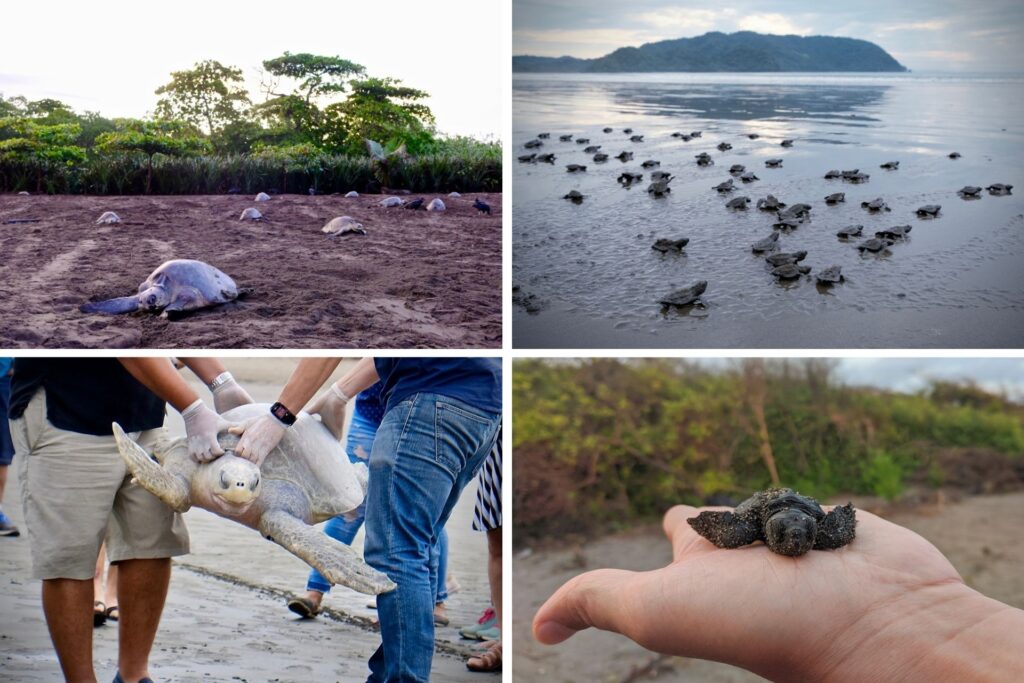
3. Mujer Tejedora Foundation – empowerment of indigenous women
Driven by the Mujer Tejedora Foundation, founded in 2011 by Bribri indigenous leaders in the Talamanca region, this program focuses on empowering indigenous women economically and socially. Unfortunately, many of these women face limited opportunities to start their own businesses due to scarce financial and technological resources. Volunteers help by leading workshops on entrepreneurship, digital literacy, and language skills, as well as organizing local events and fairs. Here are more details:
| Characteristics | Details |
| Requirements | Over 20 years old, interest in gender equality, knowledge of teaching |
| Duration | From 4 to 12 weeks |
| What’s included | Accommodation in indigenous community, food and training |
| Price | From $850 per month |
Types of projects for volunteering in Costa Rica
In the previous section, we explored three volunteer programs in Costa Rica covering different areas (wildlife conservation, early childhood education, and indigenous women’s empowerment). You can also get involved in many other projects across the country. The key is to choose a program that truly inspires you, one that speaks to your passion and purpose, so your experience is deeply rewarding. Here are some of the volunteer opportunities available:
1. Environmental conservation and animal care
Besides sea turtle conservation, there are other volunteer opportunities in Costa Rica focused on the environment and wildlife, such as reforestation, mangrove restoration, beach cleanups, environmental education, and monitoring local flora and fauna. These activities mainly take place in areas like the Osa Peninsula, Tortuguero, and Monteverde.
2. School training and educational support
Some rural areas like Nicoya, Limón, Alajuela, and Desamparados offer limited access to early childhood education. In this project, your role will be to teach subjects like languages, math, or arts. Through this volunteer program in Costa Rica, many children are able to complete their education and open doors to better opportunities in the future.
3. Community health
Though less common, volunteers in Costa Rica actively promote preventive health and child nutrition. These efforts are led by NGOs, health agencies, churches, and universities. If you have medical training, you can make a real difference by helping run hygiene and wellness campaigns in remote communities with limited healthcare access, like Guatuso, Los Chiles, and Upala.
4. Support for women
Earlier, we talked about volunteering programs focused on empowering indigenous women in Costa Rica. There are other organizations working with Bribri and Cabécar communities as well. Through leadership and entrepreneurship workshops, these women gain new skills that open doors to professional opportunities they hadn’t had access to before.
How much does it cost to volunteer in Costa Rica?
Volunteering in Costa Rica for free isn’t possible. Organizations need to cover expenses like accommodation, meals for volunteers, and project management, so charging a weekly or monthly fee is necessary to keep things running. To give you an idea, here are some typical costs you can expect:
| Concept | Approximate cost |
| Program fee | $500 for two weeks |
| International flight | $500 – $900 |
| Travel/medical insurance | $30 – $70 |
| Local transportation | $30 – $100 per month by cab or bus |
| Accommodation | $100 – $200 per week, if not included |
| Personal expenses | $100 – $200 |
Despite these costs, volunteering with an organization will actually save you a lot compared to going alone, since NGOs benefit from special discounts and exemptions in the country for the work they do. This means you won’t have to cover expenses like these:
- High cost of tourist accommodation
- Daily cost of eating out
- Free organized tours
- Transportation to the workplace
Frequently asked questions about volunteering in Costa Rica
If your program is under 90 days, you can usually enter as a tourist (depending on your nationality). For longer stays, the organization should help you arrange a special permit or visa.
Costa Rica is one of the safest countries in Central America with a welcoming population, especially with volunteers.
The most popular programs focus on environmental and wildlife conservation, especially sea turtles. But there are also opportunities in education, healthcare, and women’s empowerment.
It’s not a strict requirement, having basic English is often enough to communicate with the organization. That said, knowing some Spanish will definitely help you connect more easily with the local community, so we recommend taking a course before your trip if you can.
Weekends are usually free, giving volunteers the chance to explore the country—whether it’s surfing, hiking, visiting volcanoes, or discovering Costa Rica’s stunning national parks.























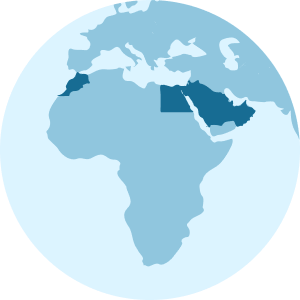





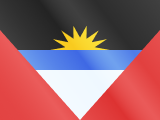








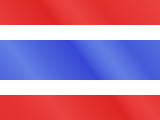







 Pay
Pay  Language
Language  Currency
Currency 


















 No results found
No results found



